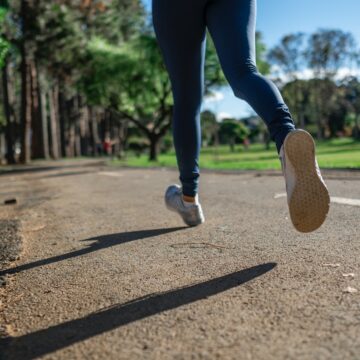
- Running is a convenient form of aerobic exercise that you can tailor to fit your lifestyle and goals.
- Some people like running on an empty stomach.
- Eating before running is better for the brain and body.
Some people like running in the morning on an empty stomach. They sometimes call this “fasted running” or “fasted training.” After a night of fasting, you have low glycogen levels, the storage form of carbohydrates that your body uses for energy. People who do fasted training believe that low glycogen levels make the exercise beneficial. However, it’s not true for everyone.
Benefits of running without eating

1. Increased fat burn
A small study published in 2015 found that males who worked out before breakfast had increased fat oxidation over 24 hours. A small 2017 study with female participants found the same results. The researchers say the results can be attributed to the low carbs levels that stimulate genes that control fat oxidation.
However, a 2018 study found that fasting burned less fat after exercise than when you eat protein or carbs pre-workout. Another recent review of 72 studies didn’t find a strong link between fasted exercise and increased fat burn.
2. Reduced energy intake
A small 2016 study found that male participants who did fasted training consumed less energy over one day. Another small 2019 study found the same results. When your blood and muscle glycogen levels are drained, your body uses your liver glycogen stores, which affects your energy intake.
3. Might improve aerobic endurance
A small 2010 study found that fasted exercise was associated with higher maximum oxygen uptake during intense physical activity.
4. Fewer digestion problems
Prolonged exercise can cause digestive issues that affect athletes who run long distances. You might be able to prevent this when you do faster training.
Drawbacks of running without eating

1. Lower training intensity
When your stored fats are not enough to fuel your run, you will experience fatigue and difficulty maintaining high intensity or pace.
A 2010 study found that running on an empty stomach was linked to lower endurance in male participants. A 2018 review of 46 studies also found that eating before exercise supports prolonged aerobic performance.
2. Injury risk
Fatigue can make you susceptible to injury during exercise. Your brain also needs glucose to function properly. When you run without first eating, your brain might not have enough energy to practice proper form and be alert of your surroundings.
3. Muscle loss
The hormone cortisol controls basic functions like blood glucose and response to stress. High levels of cortisol can cause muscle loss and weakness. Cortisol levels are highest in the morning. According to a 2015 study, morning exercise on an empty stomach increases cortisol levels.
4. Risks for certain conditions
Exercising fasted can cause low blood sugar for people with type 1 or type 2 diabetes, especially when taking diabetes medications, like insulin. People with Addison’s disease experience the same results when running fasted.
5. Ineffective for long-term weight loss
A small 2014 study found that exercising before or after eating has similar effects on weight loss, meaning exercising fasted doesn’t provide more significant body composition changes than running after a meal.
Which is better?

In general, eating before running is recommended because it gives your body the necessary energy to safely and efficiently exercise. If you like running on an empty stomach, do light to moderate running, and rest if you start feeling lightheaded. For high-intensity or long-distance running, it’s best to eat before.
Via Healthline
